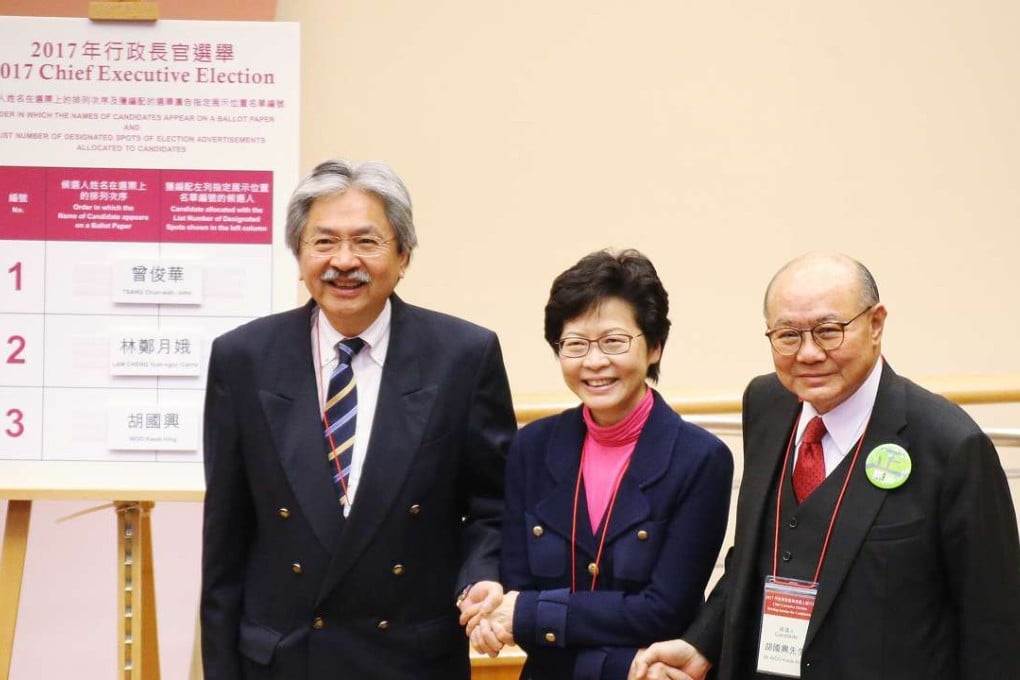Hong Kong leadership hopefuls lock horns at first debate, but John Tsang stays away
Candidates Carrie Lam and Woo Kwok-hing spar at forum, with retired judge saying ex-chief secretary is responsible for rifts in society

Hong Kong leadership candidates Carrie Lam Cheng Yuet-ngor and Woo Kwok-hing crossed swords during the first public debate of the election race on Sunday, taking aim at each other’s policy platforms and governing styles.
But popular underdog John Tsang Chun-wah was conspicuously absent from the forum, organised by think tank Path of Democracy.
During the 90-minute sparring session, Woo locked horns with one of the hosts, Ronny Tong Ka-wah, after the think tank’s founder asked why Woo would aim such strongly worded criticism at Lam when he had pledged to mend rifts in society. Tong has previously voiced support for Lam’s ideas on government finance.
Woo, a retired judge whose 180 nominations allowing him to stand in the race all came from the city’s pan-democratic political bloc, retorted that it was Lam, who quit as the government’s No 2 official in January, that was responsible for inflaming social divides.
A 1,194-member Election Committee will on March 26 vote on who is to be Hong Kong’s next leader. The candidates were required to secure a minimum of 150 nominations from committee members to take part in the poll.